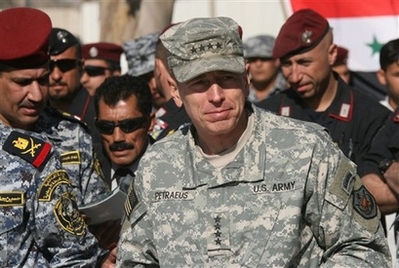US Senate OKs $70B for Iraq, Afghanistan
Updated: 2007-12-19 15:27
Washington - The Senate of the United States gave President Bush a big win on Iraq Tuesday night as it passed a massive $555 billion spending bill combining funding for 14 Cabinet departments with $70 billion for US military operations there and in Afghanistan.
But Bush's GOP allies were divided over whether the omnibus appropriations bill represented a win for the party in a monthslong battle with Democrats over domestic agency budgets.
|
|
In rapid succession, the Senate cast two votes to approve the hybrid spending bill. By a 70-25 vote, the Senate approved the Iraq and Afghanistan war funds -- without restrictions that Democrats had insisted on for weeks.
Senators followed with a 76-17 vote to agree to a bundle of 11 annual appropriations bills funding domestic agencies and the foreign aid budget for the budget year that began Oct. 1.
The House is slated Wednesday to ready the entire package for Bush, though the vote will be only on the Iraq portion of the measure. That vote would cap a parliamentary dance choreographed to ease the overall package through a chamber split between Democratic opponents of the Iraq war and GOP foes of the domestic spending portion of the bill.
The result on domestic spending created a divide between Republicans who thought it was a good deal, such as Senate Minority Leader Mitch McConnell of Kentucky, and those who said it was too expensive and larded with pork-barrel spending.
"We've held the line, achieved what everyone thought was the unachievable," McConnell said. "We are very proud of this bill."
House Republicans and a few Senate GOP conservatives felt otherwise and were disappointed that Bush hadn't taken a harder line in end-stage negotiations. The omnibus measure held to Bush's "top line" for the one-third of the federal budget passed by Congress each year, but only through a combination of budget maneuvers that allowed Democrats to restore funding to budget accounts targeted by Bush and finance billions of dollars worth of lawmakers' home-state projects.
"Congress refuses to rein in its wasteful spending or curb its corruption," said Rep. John Shadegg, R-Ariz.
Conservatives estimated the measure contained at least $28 billion in domestic spending above Bush's budget, funded by a combination of "emergency" spending, transfers from the defense budget, budget gimmicks and phantom savings.
Twenty-one Democrats and Connecticut independent Joe Lieberman -- who stood with Republicans at a post-vote news conference -- voted with every Republican but Gordon Smith of Oregon to approve the Iraq funding.
Democrats again failed to win votes to force removal of US troops or set a nonbinding target to remove most troops by the end of next year.
With Bush winning the $70 billion infusion of troop funding, other Republicans muted their criticism.
"I do think the president has a victory here," said House Minority Whip Roy Blunt, R-Mo.
Still, the win was hardly clear-cut for Republicans hoping the president would emerge from the battle with Democrats over the budget with a result that would more clearly demonstrate to core GOP voters the party's commitment to fiscal discipline.
While disappointed by ceding Iraq funding to Bush, Democrats hailed the pending appropriations bill for smoothing the rough edges of Bush's February budget plan, which sought below-inflation increases for most domestic programs and contained numerous cutbacks and program eliminations.
"The omnibus bill largely yields to the president's top-line budget numbers, but it also addresses some of the bottom-line priorities of the American people," said Sen. Tom Harkin, D-Iowa. "The Grinch tried to steal Christmas, but we didn't let him get all of it."
Democrats were able to fill in most of the cuts by using the very budgetary sleight of hand lambasted by conservative groups such as the Club for Growth and Citizens Against Government Waste.
The White House, which maintained a hard line for months, has been far more forgiving in recent days, accepting $11 billion in "emergency" spending for veterans, drought relief, border security and firefighting accounts, among others. Other budget moves added billions more.
"Congress did come down to the president's overall top line," White House press secretary Dana Perino said. "And in regards of the emergency spending, most of that spending would have passed on an emergency basis anyway. It's not added into the baseline of the budget."
The bill passed the House late Monday. Under an unusual legislative two-step, the Iraq portion of the bill would be returned to the House on Wednesday, with Republicans supplying the winning margin. That vote, if successful, would send the entire omnibus bill to Bush for his signature.
Democrats succeeded in reversing cuts sought by Bush to heating subsidies, local law enforcement, Amtrak and housing as well as Bush's plan to eliminate the $654 million budget for grants to community action agencies that help the poor.
Democrats also reversed Bush-sought cuts to state and local law enforcement grants, aid to community action groups and airport modernization grants.
Democrats also added funding for food programs, subsidies to community development banks and Homeland Security Department grants to first responders.
Taxpayers for Common Sense, a Washington-based watchdog group that opposes so-called pork barrel projects, counted 8,983 such "earmarks" worth $7.4 billion. These hometown pet projects include economic development grants, aid to local transit and police departments and clean water projects, among many others.
|
|
|
||
|
||
|
|
|
|
